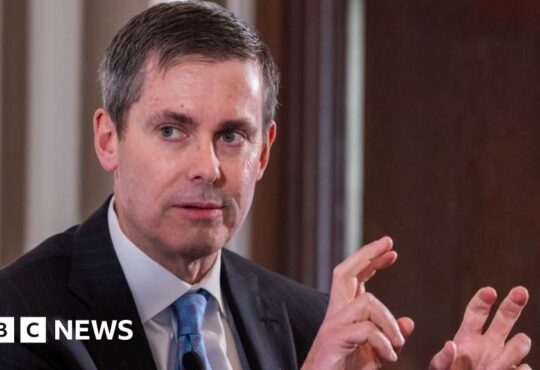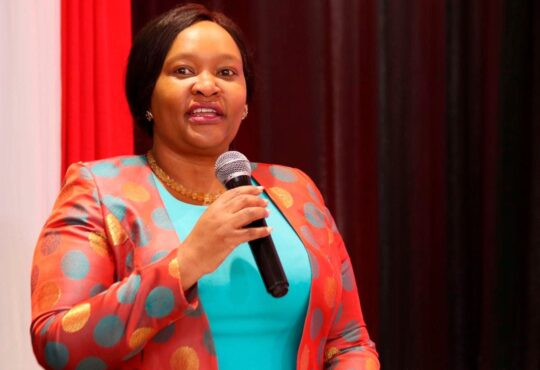Unlock the Editor’s Digest for free
Roula Khalaf, Editor of the FT, selects her favourite stories in this weekly newsletter.
The Bank of England should regularly scrutinise its monetary policy framework and strategy as policymakers seek to learn lessons from their handling of the UK economy, the former chair of the US Federal Reserve has said.
Ben Bernanke told MPs on Wednesday that the central bank could mirror peers such as the Bank of Canada and the Fed in holding a wide-ranging review of tools and decision-making about every five years.
Bernanke’s comments come after his review of BoE forecasting and communications last month found “significant shortcomings” in the central bank’s baseline economic model.
The UK central bank has come under heavy fire for being slow to anticipate the inflationary upsurge that took the rate of price rises above 11 per cent in late 2022.
As part of its response to that episode, the BoE last year announced a review focused narrowly on questions of how it models and forecasts the economy.
Bernanke told the House of Commons Treasury select committee that it would have been impossible to prevent the surge in UK inflation to double-digit levels without driving the economy into a deep downturn. But in his testimony he suggested the BoE could subject itself to broader self- scrutiny.
“What’s specifically missing from the Bank of England, and I’m not volunteering, is something more focused on policy implementation and framework, which other central banks are beginning to do now,” Bernanke said. “Reviews are useful. Five and six years is a reasonable timeframe.”
Responding to Bernanke’s report, BoE governor Andrew Bailey said it marked a “once-in-a-generation opportunity” to update forecasting approaches and tailor them to a “more uncertain world”.
The central bank said it was “committed to action” on all 12 recommendations but has yet to set out its longer-term strategy on reviewing its approach to monetary policy.
Bernanke’s review followed a report by the House of Lords economic affairs committee, which last year criticised the BoE for showing “complacency” about the inflationary threat. It called on parliament to conduct regular reviews of the central bank’s remit and performance.
Bernanke’s review was particularly critical of the BoE’s forecasting infrastructure, saying it needed to be replaced or at least thoroughly revamped.
He told MPs that he had not been able to get to the bottom of how these problems became so pronounced, but suggested that the central bank had been so focused on “putting out current fires” that it did not devote enough time to maintaining or updating its software.
Among the questions raised by the review was whether the BoE should start publishing its own interest-rate projections, following the practice of peers in countries such as Sweden and Norway.
Bernanke acknowledged that doing so would raise logistical challenges, and that such a projection could provide a very powerful form of guidance at times when the outlook may well be very uncertain.
He added that he would not suggest the BoE starts issuing a “dot-plot” whereby each policymaker puts out their own projections, as is the case with the Fed.
But he made it clear that he expected the BoE to look very closely at the idea of publishing rate forecasts, saying he had offered to continue advising the central bank on the topic.
While the case for issuing the projections was not a “slam dunk”, Bernanke said: “it’s definitely something worth looking at, and I would be disappointed if the bank did not seriously review the possibility at some point in the next couple of years.
“I would like to add that I have told the Bank I would be happy to continue to advise and consult to the extent that would be useful,” he added.






